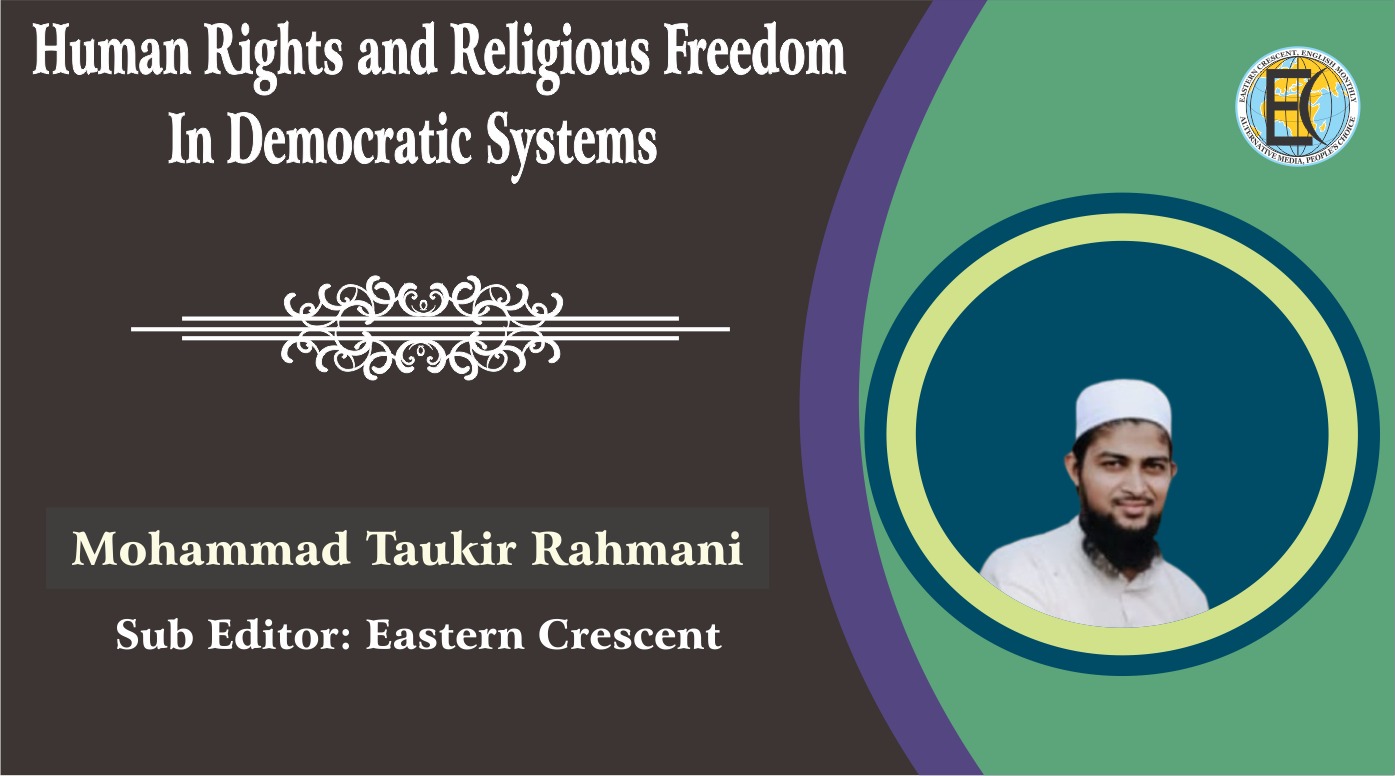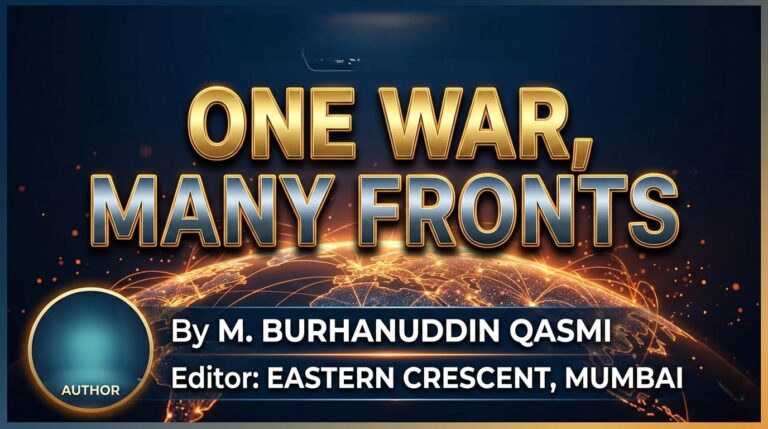
Human Rights and Religious Freedom in Democratic Systems
Human Rights and Religious Freedom in Democratic Systems
Mohammad Taukir Rahmani
EC Exclusive
Democracy is a system of government in which the power to make decisions lies with the people. In a democratic system, people have the right to participate in decision-making, primarily through voting and other means. They choose their representatives to act as their voice, representing their interests within the framework of the law. It is the responsibility of the elected representatives to work for the people beyond their own interests, provided they are sincere in their work and commitment to the public.
In a democratic system, just as people have the right to elect representatives, they also have the right to remove them if they act against the law or the public’s interests. Democracy establishes rules and laws to ensure a smooth and effective system of governance, which is known as the Constitution. The Constitution guarantees essential rights and principles for living a disciplined life. Democracy emphasizes values such as equality, freedom of speech, freedom of religion, the rule of law, and the protection of human rights, enabling individuals to have a voice in how they are governed.
There are different forms of democracy, including direct democracy, where people vote on issues directly, and representative democracy, where elected officials make decisions on behalf of the citizens. In a democratic country, people from various schools of thought, divided by caste, color, creed, religion, and language, live together. This diversity is the beauty of democracy. The Constitution protects human rights, including the freedom to follow one’s own beliefs, and ensures the protection of religious rights, including the right to worship and the preservation of religious shrines, archaeological sites, and cultural architecture.

No individual, not even the president in a democratic system, has the right to impose their own interests, opinions, religion, or way of life on others. If a government body begins to enforce its decisions without regard for the people’s interests and opinions, it would devolve into a mobocratic or tyrannical system, which goes against the essence of the Constitution. The government has no authority to interfere with religious doctrines or to compel a religion to conform to a particular view. If such interference occurs in a democratic country, it is considered unconstitutional.
Everyone in a democracy has equal rights and should be treated as equals. No one is superior or inferior to others. The government must acknowledge its mistakes when they occur, and criminals must be held accountable. In the eyes of the law, a criminal is a criminal, whether they are a common person or hold a high position. It is the government’s duty to ensure justice is served.
There are no restrictions on food preferences or lifestyle choices in a democracy. Some may be vegetarians, while others may be carnivores. However, a vegetarian cannot force a carnivore to abstain from eating meat, nor can a carnivore compel a vegetarian to eat meat. Everyone is free to make their own choices, and no one should be coerced or treated inhumanely for their preferences.
To prevent crime and corruption, punishment must be enforced. If criminals and the corrupt are left unchecked, and if people are restricted from practicing their religion, expressing their opinions, or imparting education, then democracy has effectively died. In such a scenario, the Constitution is trampled underfoot, and humanity is left gasping for breath, desperately in need of nurturing.
You May Also Like
 Editorial
EditorialONE WAR, MANY FRONTS
ONE WAR, MANY FRONTS By: M. Burhanuddin Qasmi Editor: Eastern Crescent, Mumbai The fog...
 Editorial
EditorialIndia Should Rebalance Its Neighborhood Diplomacy
India Should Rebalance Its Neighborhood Diplomacy By: M. Burhanuddin Qasmi Editor: Eastern Crescent, Mumbai...
 Editorial
EditorialWelcome, UpScrolled: Reclaiming the Truth in a Biased Digital Ecosystem
Welcome, UpScrolled: Reclaiming the Truth in a Biased Digital Ecosystem By: M. Burhanuddin Qasmi...
 Editorial
EditorialThe Imarat-e Shariah is also a Trust of the Muslim Community, Like the Waqf!
The Imarat-e Shariah is also a Trust of the Muslim Community, Like the Waqf!...
 Editorial
EditorialOpposing Films is Part of Promotion
Opposing Films is Part of Promotion By: M. Burhanuddin Qasmi Editor: Eastern Crescent, Mumbai...
 Editorial
EditorialThank You, Bihar!
Thank You, Bihar! By: M. Burhanuddin Qasmi Editor: Eastern Crescent, Mumbai What an unforgettable...

Comments (9)
Leave a Comment
I too think therefore, perfectly composed post! .
Appreciate it for this marvelous post, I am glad I observed this internet site on yahoo.
It's actually a nice and helpful piece of info. I am happy that you shared this helpful info with us. Please stay us informed like this. Thank you for sharing.
I am no longer certain where you're getting your information, but good topic. I must spend a while learning more or figuring out more. Thanks for magnificent info I was looking for this information for my mission.
As I web-site possessor I believe the content material here is rattling excellent , appreciate it for your hard work. You should keep it up forever! Best of luck.
An impressive share, I just given this onto a colleague who was doing just a little evaluation on this. And he in truth bought me breakfast as a result of I discovered it for him.. smile. So let me reword that: Thnx for the deal with! But yeah Thnkx for spending the time to debate this, I really feel strongly about it and love studying extra on this topic. If potential, as you become expertise, would you thoughts updating your blog with extra details? It's highly helpful for me. Large thumb up for this weblog post!
I like what you guys are up also. Such intelligent work and reporting! Keep up the excellent works guys I¦ve incorporated you guys to my blogroll. I think it will improve the value of my site :)
Nice post. I learn something more challenging on different blogs everyday. It will always be stimulating to read content from other writers and practice a little something from their store. I’d prefer to use some with the content on my blog whether you don’t mind. Natually I’ll give you a link on your web blog. Thanks for sharing.
I was just searching for this information for some time. After six hours of continuous Googleing, finally I got it in your website. I wonder what's the lack of Google strategy that don't rank this kind of informative sites in top of the list. Normally the top sites are full of garbage.